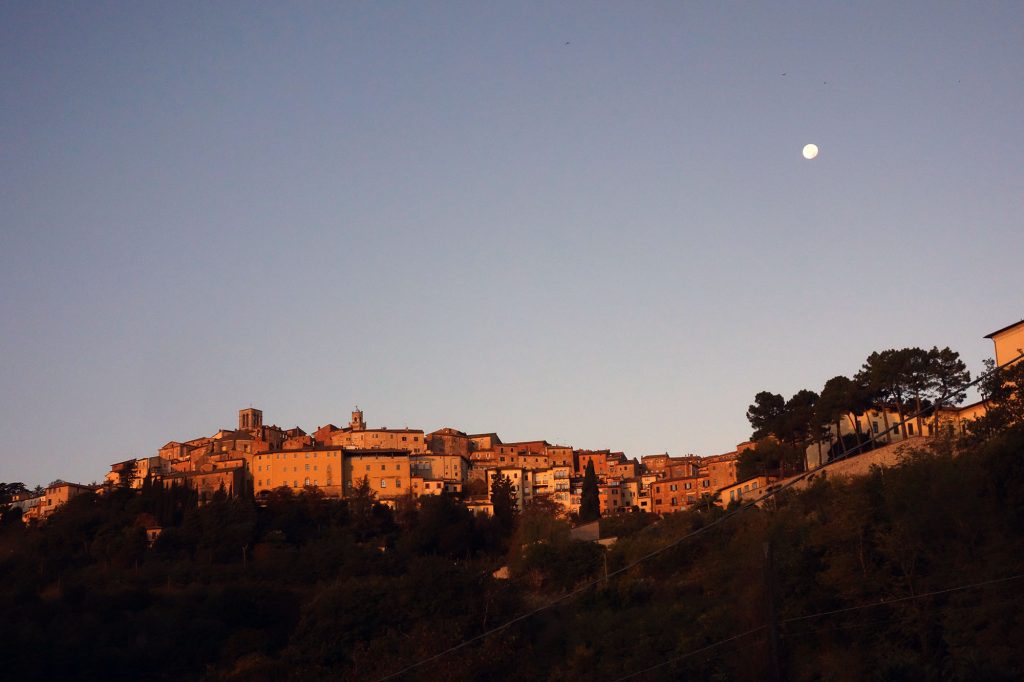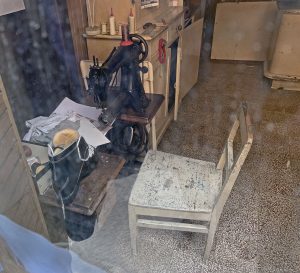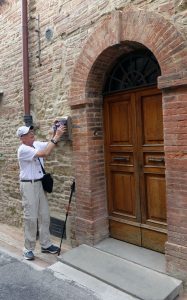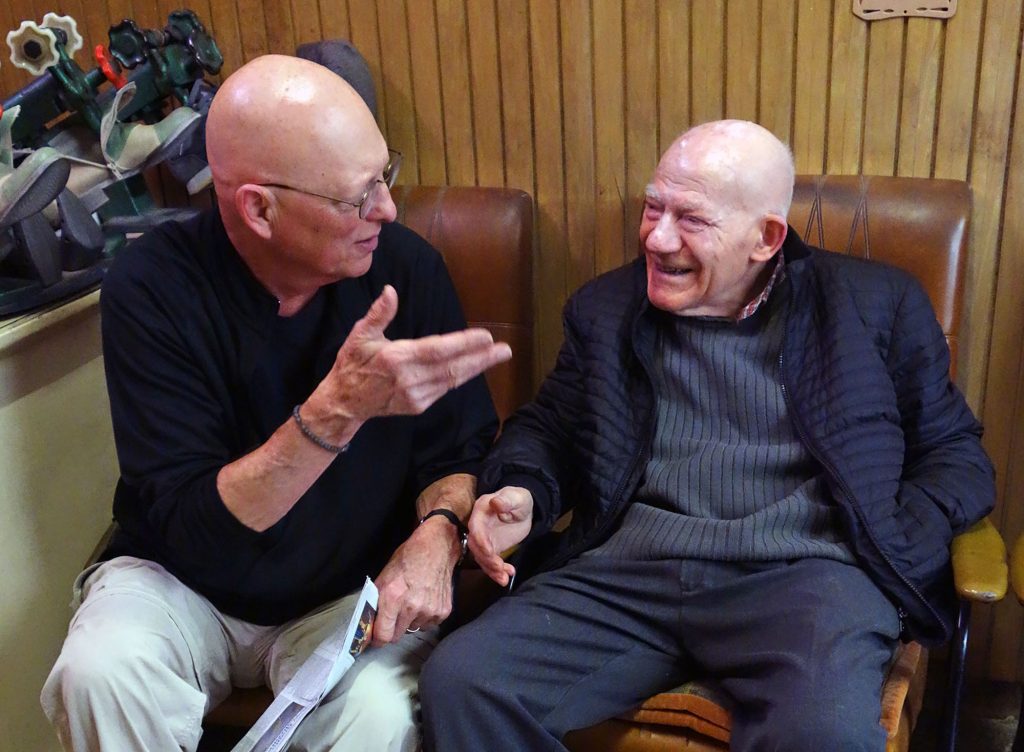
Sunrise and moonset.
At the same moment; precious and rare.
Thus, the morning concert begins:
A church bell peals.
A rooster crows.
A dove coos.
A dog barks.
And Franco trundles down the steep driveway with his dawn load of firewood.
I call out the only spare Italian that comes to mind: “Faccia Luna!”
The old farmer, pauses and looks up at the sky, and then at me, smiles and nods, and moves on — his gesture that of an indulgent parent responding to an over-excited child.
I can’t help it. The moon and I, we have a thing.
Cheesy as it may sounds, the sunrise/moonset event this morning seems to symbolize “the Circle of Life.”
Here in small-town Tuscany, one is very much aware of the ebb and flow of life, of the coming and going, the new and the old, the birth and the death of things – an of people.
Losing Stella’s
If you return to a place and stay for a spell, you notice the changes. And sometimes change can often bring a little heartbreak.
As we take our daily walks up to the top of this old Tuscan hilltown, we catalog with satisfaction the new shops that have sprung up along the precipitously steep and narrow village streets.
But as a friend of the ‘80s like to say, “Sometimes it’s not all sunshine, Care Bears and rainbows.”
After a long walk, we head for Stella’s, our favorite coffee and panini shop with newspapers strewn about on the tables for customers to read — only to find the shop dark and shuttered.
I feel the sting of loss as I picture in my mind’s eye the cheery mother-daughter team fielding out feeble attempts at ordering in Italian, gently teaching us to think in Euros, waiting patiently as we fumble through our small change.
Such a small thing, kindness.
Maybe not so small after all.

Looking for Virio Neri
Nor will I ever forget the kindness of Virio Neri, the village cobbler, who closed his shop last winter at age 89. Gabriella at the bookbinders across the street tells us that after the unexpected death of one of his regular friends and daily visitors, Mr. Neri was so heartbroken he couldn’t stand to come to work anymore.
Every time we pass the old cobbler’s shop on the main drag, my eyes can’t help but be drawn to the darkened little storefront.
There, through the dusty window, sits Mr. Neri’s care-worn work chair, pulled up to an antique sewing machine, where some customer’s single black boot rests on the workbench awaiting the return of the old cobbler to finish the job.
We go in search of Mr. Neri’s little home, deep in the windy narrow back streets of this 13th century Tuscan hilltown.
Perhaps we can leave him a note under the door. Maybe a family member will find it and take it to him. I must find a way to tell him how much we care. How much our visits over the years have brought me joy — he the old Italian who couldn’t speak a word of English, and me with my atrocious Italian. Waving our hands and smiling, somehow we connected anyway.

It’s as if the Universe is trying to send me signals. If you are allowed the privilege of getting close — of intimacy even — you will learn to deal with loss.
I should tell that to Rick Steves.
When we first came here five years ago, it never occurred to us that grieving would be a part of the complete experience of being a temporary local, of being part of a community.
Carrboro co-housing guru Giles Blundun put it succinctly when he said, “Community is a verb.” Thus, community is not just a place or a collection of people; it’s something you do, an intentional act of inclusion.
A line from a Buddhist lesson comes to mind: “Everything that has a beginning has an ending; come to terms with that, and you will be at peace.”
A photo of we two from last year fills the void for now.
Meanwhile, I’ve got two more weeks to find my old cobbler friend.


